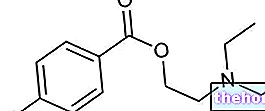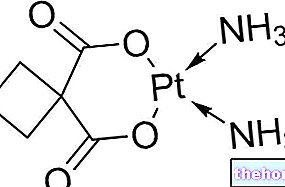Definition
Atrial flutter is an "alteration of the heart rhythm that originates in" the atrium and then spreads to the ventricle.
This alteration of the heart rhythm mainly affects male and elderly patients.
Two forms of atrial flutter can be distinguished: paroxysmal (rapid onset) and permanent (gradual onset).
Causes
The triggers for atrial flutter can be of different nature. These include rheumatic heart disease, valvular disease, myocardial infarction, coronary heart disease, hypertension and pericarditis.
Other non-cardiovascular causes that can favor the onset of atrial flutter are: hyperthyroidism, obesity, alcohol and / or drug abuse, smoking, anxiety and even some types of drugs.
Symptoms
The main symptoms that can occur in the presence of atrial flutter are: palpitations, dyspnoea, chest pain, dizziness, feeling of weakness and fainting.
In addition, the altered heart rhythm that characterizes atrial flutter negatively affects both cardiac output and blood circulation, making blood flow turbulent. This latter condition, in turn, can cause injury to blood vessels and promote the onset of thrombi.
The information on Atrial Flutter - Medicines to Treat Atrial Flutter is not intended to replace the direct relationship between healthcare professional and patient. Always consult your doctor and / or specialist before taking Atrial Flutter - Medicines to Treat Atrial Flutter.
Medicines
The treatment you decide to undertake depends on the form of atrial flutter that occurs (paroxysmal or permanent).
Generally, for the treatment of paroxysmal atrial flutter, the doctor intervenes by administering digitalis and antiarrhythmic drugs. In addition, a particular type of electrical treatment can also be performed: cardioversion.
In the case of permanent atrial flutter, on the other hand, in addition to intervening with the administration of antiarrhythmics and digitalis drugs, it is possible to resort to the use of anticoagulants (to reduce the risk of thromboembolism, particularly frequent in cases of permanent atrial flutter) and beta-blockers or calcium channel blockers to slow the heart rate.
In addition, even in cases of permanent atrial flutter, cardioversion can be used; alternatively, patients can also undergo another type of electrical treatment: catheter radiofrequency ablation.

The following are the classes of drugs most used in the therapy against atrial flutter and some examples of pharmacological specialties; it is up to the doctor to choose the active ingredient and dosage most suitable for the patient, based on the severity of the disease, the state of health of the patient and his response to treatment.
Digoxin
Digoxin (Lanoxin ®, Eudigox ®) is a digitalis glycoside that exerts a positive inotropic effect, i.e. it is able to increase the contraction force of the heart, but at the same time also exerts a negative chronotropic effect, i.e. it decreases the heart rate.
When administered orally, the dose of digoxin usually used in adults can vary from 0.25 mg up to 1.5 mg of the active ingredient per day, to be taken as a single dose or in divided doses. In any case, the exact amount of medicine to be taken will be determined by the doctor for each patient.
Antiarrhythmics
Antiarrhythmics - as their name suggests - are drugs used to counteract irregular heartbeats. Therefore, they can be used successfully in the treatment of both paroxysmal and permanent atrial flutter.
Among the different antiarrhythmics that can be used, we remember:
- Amiodarone (Amiodar ®, Cordarone ®): Amiodarone is an antiarrhythmic available for both oral and parenteral administration.
When administered via an intravenous injection, the drug dose usually employed is 5 mg / kg of body weight.
When administered orally, however, it is recommended to start amiodarone therapy with a loading dose of 600 mg per day. Thereafter, this dosage can be decreased until a maintenance dose of 100-400 mg per day is reached. - Flecainide (Almarytm ®): Flecainide is available for oral administration. Usually - for the treatment of atrial flutter - the dose of drug used is 50-100 mg, to be taken twice a day.
- Ibutilide (Corvert ®): Ibutilide is an antiarrhythmic that is administered intravenously only by specialized personnel. The amount of drug to be administered depends on the patient's weight. Generally, in patients with a body weight greater than 60 kg, the dose of "Ibutilide usually used is 1 mg.
Anticoagulants
As mentioned, anticoagulants are used to prevent thrombus formation in cases of atrial flutter, especially of the permanent type.
Among the various active ingredients that can be used for this purpose, we mention warfarin (Coumadin ®). Warfarin is an anticoagulant available for oral administration. The amount of active ingredient to be taken, the frequency of administration and the duration of treatment must be established by the doctor on a strictly individual basis for each patient.
Beta blockers
Beta-blockers are drugs generally used for the treatment of hypertension, but which are also very useful in the treatment of heart rhythm alterations. These include:
- Metoprolol (Seloken ®, Lopresor ®): the dose of metoprolol usually administered in adults is 100-200 mg per day, to be taken orally in 2-3 divided doses.
- Atenolol (Atenol ®, Tenormin ®): Atenolol is available for oral and parenteral administration. For the treatment of arrhythmias, it is recommended to start treatment by administering atenolol parenterally. Thereafter, therapy can be continued orally by taking a maintenance dose of 50-100 mg of atenolol per day.
Calcium channel blockers
Calcium channel blockers are also used in the treatment of atrial flutter. These drugs work by antagonizing the voltage gated calcium channels present in the heart.
Among the various active ingredients that can be used, we mention verapamil (Isoptin ®), a calcium channel blocker available for oral and parenteral administration.
When administered orally, the usual dose of verapamil used is 40-80 mg, to be taken three times a day. In any case, when taking the drug, it is necessary to follow all the indications that will be given by the doctor.























-nelle-carni-di-maiale.jpg)




